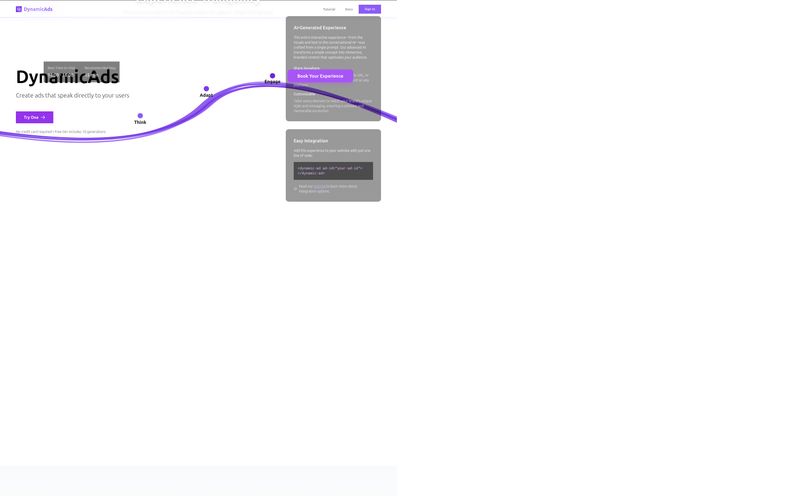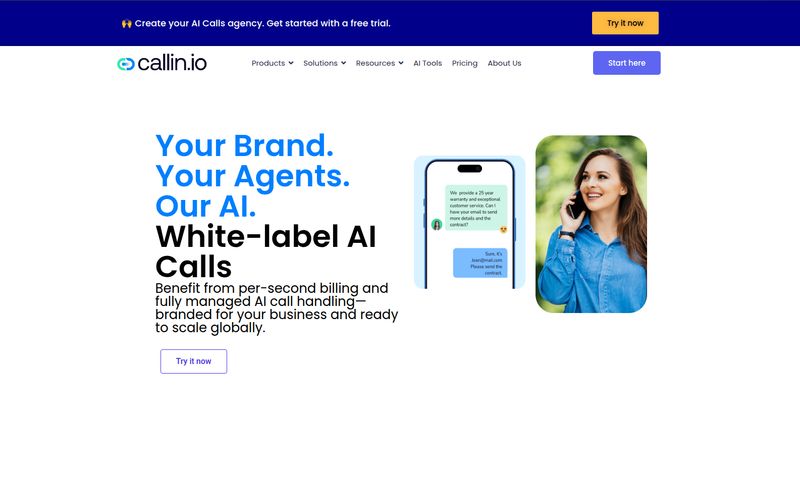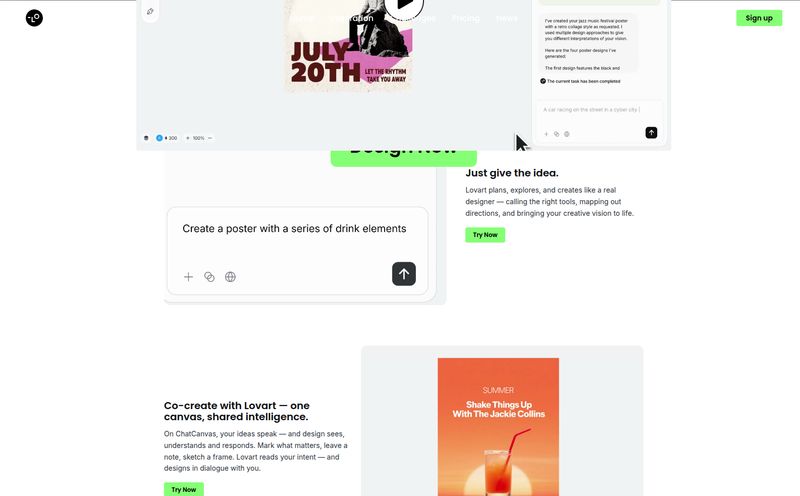You, me, and the ever-present, soul-crushing backlog. It's the monster under every engineering manager's bed. We've all been there: sprint planning meetings that feel more like therapy sessions, senior devs spending half their day on tedious bug fixes, and that one ticket from 2022 that's become a team mascot. We've thrown more tools, more processes, and more caffeine at it, but it just... keeps... growing.
For years, I've been hearing the promise of AI in software development. First, it was just smarter code completion. Then came GitHub Copilot, which was a pretty big leap. But most of these tools still felt like a power-up for the developer, not a new player on the team. Well, I recently stumbled across a platform called Engine, and I gotta say, this feels different. It's not just another assistant; it's being pitched as an autonomous AI software engineer. Bold claim, right? So, naturally, I had to see what was under the hood.

Visit Engine
So, What is Engine, Exactly?
Okay, cutting through the marketing jargon, Engine is essentially an AI agent designed to function like a junior developer on your team. It's built on Large Language Models (LLMs) and it hooks directly into your existing project management stack—think Jira, Trello, Linear, the usual suspects. You don't brief it in a separate app; you just assign it a ticket, just like you would with a human team member. From there, Engine gets to work. It reads the ticket, understands the context, and then writes the code, and creates a pull request. All on its own.
It's a suite of tools, really. It can spin up API endpoints or even basic HTML pages just from a natural language description. The core promise here is automation. Not just automating a single line of code, but automating the entire workflow from ticket to PR. It's like having a tireless intern who never needs a coffee break and actually enjoys clearing out the backlog of small-to-medium-sized tasks. You know, all the stuff that's necessary but doesn't require a senior architect's brainpower.
How Engine Could Actually Change Your Workflow
Finally, An End to the Tedious Work
The single biggest thing that caught my eye is the automated pull request generation. Think about how much time your best engineers spend on small fixes, dependency updates, or building out a simple, boilerplate API. It's a classic case of "yak shaving" that drains productivity and morale. Engine aims to take that entire category of work off their plate.
By handling these tasks, it frees up your senior talent to focus on what they were hired for: solving complex problems, designing system architecture, and innovating. It's not about replacing developers; it's about augmenting them. It's like giving your all-star quarterback an offensive line that handles all the small hits, so they can focus on throwing the winning pass. That's the dream, anyway.
Tackling the Backlog Beast
Let's be real, a bloated backlog is a symptom of a larger problem, but it's also a problem in itself. It slows down momentum and makes it impossible to be agile. Because Engine integrates directly with tools like Jira, it can be set loose on that backlog. You can literally assign it a list of bugs or feature tweaks and watch it start submitting pull requests for review. In my experience, clearing out that low-hanging fruit can have a massive psychological impact on a team. It creates a sense of progress and momentum that is often hard to come by.
The Real-World Caveats
Okay, let's not get carried away. This isn't a magic wand. There are some practicalities to consider. For one, the effectiveness of Engine is going to be directly proportional to how well you write your tickets. The old "garbage in, garbage out" rule applies here, maybe more than ever. If your tickets are vague or lack clear acceptance criteria, the AI is going to struggle. So, it does force a certain level of discipline on the team, which might actually be a good thing in disguise.
There's also the initial setup. It's not just plug-and-play; you have to connect it to your repos and project management tools, which will take a bit of configuration. And of course, there's teh big question of trust. Handing over coding tasks to an AI requires a mental shift and a commitment to rigorous code review, at least initially. You can't just let it merge to main without human oversight. That would be… brave.
Let's Talk Money: A Look at Engine's Pricing
This is where things get interesting. I appreciate when a company is transparent with its pricing, and Engine lays it all out there. They've tiered their plans in a way that feels very much like hiring a developer at different experience levels.
They've cleverly named their plans Intern, Junior, Senior, and Staff. It's a nice touch that leans right into their core concept.
- The 'Intern' Plan: This one is $0/month. Free. This is for individual developers who want to kick the tires and see what it's all about. A fantastic way to get started with no commitment.
- The 'Junior' Plan: At $395/month, this plan is aimed at helping you and your team ship faster. I see this as the perfect entry point for a small team or startup that wants to start offloading a significant chunk of their routine tasks. If it saves even 10-15 hours of a senior dev's time, it's already paid for itself.
- The 'Senior' Plan: This one is $995/month. It's designed for growing teams who want to get the most out of the platform. Presumably, this comes with more capacity, maybe priority support, and the ability to handle a much larger volume of tasks.
- The 'Staff' Plan: This is a Custom pricing tier. It's for the big players who need unlimited usage, enterprise-grade security, and maybe some bespoke integrations. Think large tech companies who want to deploy this across multiple engineering teams.
I think this pricing structure is pretty smart. It lets you scale your investment as you see the value, from a free individual plan all the way up to an enterprise solution.
My Honest Take on Engine AI
So, is Engine the future of software development? Maybe not the entire future, but it's a very compelling glimpse of it. I've seen a lot of AI tools, but this is one of the first that seems to truly understand the process of software development, not just the code. The integration with project management tools is the secret sauce here.
For engineering managers and CTOs at fast-moving startups, I think this is a no-brainer to at least try out. The potential ROI in terms of developer hours saved and increased velocity is huge. Will it replace your human developers? Absolutely not. But it might just be the best junior developer you've ever hired—one that lets your senior team soar.
Frequently Asked Questions About Engine
How does Engine actually work with my team's tools?
Engine integrates via APIs with popular platforms like Jira, Trello, and Linear. You connect your account, give it access to the relevant projects and repositories, and then you can assign tickets to it directly from within your project management tool's interface.
Is Engine difficult to set up?
There is an initial setup process that involves authorizing access to your codebase (e.g., on GitHub) and your task manager. While not a one-click process, it's designed to be straightforward for a technical team and the documentation guides you through it. Expect to spend a little time on configuration to get it right.
Can Engine handle really complex coding tasks?
Right now, Engine's sweet spot seems to be well-defined, small-to-medium complexity tasks. Think bug fixes, creating standard API endpoints, updating dependencies, or refactoring a specific function. It's not designed to architect a new microservice from scratch. Its main job is to clear the noise so your human engineers can handle the big, complex challenges.
Is there a free trial?
Even better! Engine offers a completely free 'Intern' plan. It's designed for individual use and is the perfect way to test the platform's capabilities and see if it's a good fit for your workflow without any financial commitment.
What happens to the code Engine writes?
Engine submits its work as a standard pull request (PR) in your version control system, like GitHub. This means it follows your existing development workflow. Your team can then review the code, suggest changes, and run it through your CI/CD pipeline just like any PR from a human developer.
Wrapping It Up
Look, the conversation around AI in our industry is getting louder, and frankly, more confusing by the day. There's a lot of hype. But a tool like Engine feels grounded in a real, tangible problem. It's not trying to be a creative genius; it's trying to be a diligent, efficient team member that handles the grunt work. And in my book, that's incredibly valuable. It might just be the thing that finally lets us focus less on the backlog and more on building what's next.
References and Sources
- Engine Official Website
- Engine Official Pricing Page
- Harvard Business Review - How Generative AI Is Changing Work for Developers



